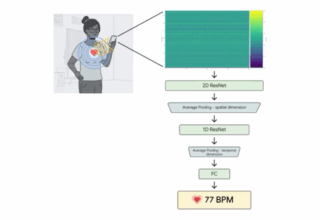
There’s never a convenient time to be involved in a car accident. It always creates friction, and the financial results can often be costly – no matter who was at fault.
The Potential Fallout of a Car Accident
You slowly back out of your driveway, checking your rearview mirror and backup camera for moving objects. Nothing is there, so you proceed out into the neighborhood. As you slowly move toward the main road, you adjust your mirrors and get comfortable. You stop at the intersection, turn on your blinker, and look both ways. You take a right turn and accelerate up to the speed limit. The light ahead is green, so you proceed. But as soon as you cross through the intersection, a car runs the red light and plows into your driver’s side door.
Situations like this are all-too-common. Even when you do everything right and practice responsible, defensive driving, you can end up in a serious collision. And the fallout can be significant:
- Physical injuries. In many cases, physical injuries are caused by car accidents. Whether it’s a simple muscle strain or something more serious – like a traumatic brain injury – the physical toll can be significant. Some injuries heal quickly, while others can lead to permanent disability.
- Emotional trauma. In addition to physical injuries, some drivers experience emotional trauma, anxiety, and even PTSD in the wake of a serious accident.
- Medical bills. Physical injuries and emotional suffering often require medical treatment. And even with good health insurance, bills can quickly add up and put you in significant debt.
- Missed work. When injuries are extensive, it’s not uncommon for car accident victims to miss weeks or months of work. Even with lots of paid time off, this eventually has a negative impact on income earning opportunities.
- Damaged vehicle. Car insurance may cover most of the damages to a vehicle, but it isn’t always enough to provide the kind of replacement that the driver wants. This can leave the individual thousands of dollars in the hole.
This is just some of the fallout that can take place after a car accident. But as you can see, the costs – both financial and non-economic – are extensive.
4 Smart Steps You Should Take
If you find yourself involved in a car accident, it’s important to take action as soon as possible. Making smart decisions throughout the process will increase your chances of reaching a full recovery and gaining access to the compensation you need to remedy your situation. Here are a few steps you should take:
- Fulfill Your Duty of Care
“As a driver of any vehicle you have a ‘duty of care’ to other road users, which means that you must take reasonable care for the safety of other people,” RapidSolicitors.com explains. “If you are involved in a collision it is your duty to stop and exchange details with the other people who are involved. If you or any other person in your vehicle suffered personal injury then you should immediately report the matter to the police and keep the incident number that the police will give you.”
Duty of care is one of the most important concepts in a situation like this. If you’re hurt or unresponsive, you don’t have the ability to help others. But if you’re in a position to, you should.
- Seek Immediate Medical Attention
The health and medical needs of anyone involved in the accident – including yourself – comes first. Call 911 and seek immediate medical attention. Should you pursue a personal injury claim at a later date, you’ll need a clear and documented medical record of your injuries.
- Preserve Evidence
Take notes, snap pictures on your phone, and save any evidence that you believe may be important at a later date. Preserving evidence increases the likelihood that you’ll be able to pursue and maximize your claim.
- Contact a Lawyer
Finally, as soon as you’re stable and able to think clearly, it would be in your best interest to contact a car accident lawyer or personal injury attorney. They can walk you through the proper steps to take from here.
Putting it All Together
A car accident – no matter how small – can have significant and long-term ramifications. By taking action and making shrewd decisions early in the process, you can reduce the negative fallout and increase your chances of reaching a full recovery (physically, emotionally, and financially).

















